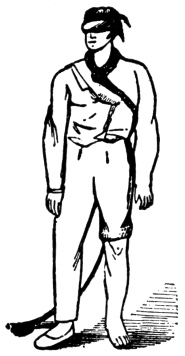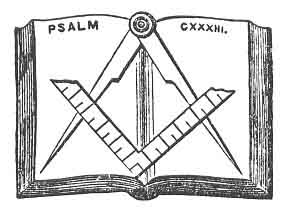It is here particularly that Weishaupt appears to wish to assimilate the government of his Sect to that of the religious orders, and especially to that of the Jesuits, by a total sacrifice of their own will and judgment, which he exacts of the adepts; and to the exercising of the Novices in this point, he expressly adverts in his instructions to the Insinuators. 21 But this is precisely the place to remark on the amazing difference between the illuminized and the religious obedience. Of that immense number of religious who follow the institutes of St. Basil, St. Benedict, St. Dominic, or St. Francis, there is not one who is not thoroughly convinced that there exists a voice far more imperious than that of his superior, the voice of his conscience, of the Gospel, and of his God. There is not one of them who, should his superior command any thing contrary to the duties of a Christian, or of an honest man, would not immediately see that such a command was a release from his vow of obedience. This is frequently repeated and clearly expressed in all religious institutes, and no where more explicitly or positively than in those of the Jesuits. They are ordered to obey their superior, but in cases only where such obedience is not sinful, ubi non cerneretur peccatum. 22 It is only in cases where such obedience can have no sinful tendency whatever, ubi definiri non possit aliquod peccati genus intercedere. 23 And, as if this were not sufficiently expressed, we hear their founder, at the very time when he recommends obedience to his religious, expressly saying, but remember that your vow is binding only when the commands of man are not contrary to those of God, ubi Deo contraria non præcipit homo. 24 All those person therefore who, like Mirabeau, surmised certain coincidences, or as he calls them points of contact, between the religious institutes and the code of the Illuminees, should have begun by observing, that religious obedience is in its very essence an obligation of doing all the good which may be prescribed without the least taint of harm. It was easy for them on the contrary to demonstrate, that the obedience sought for by Weishaupt’s code was a disposition to obey every order received from the superior in spite of conscience, and unheedful of the most iniquitous guilt, provided it tended to the good of the Order. “Our society (for such are the expressions of the code) exacts from its members the sacrifice of their liberty, not only with respect to all things, but absolutely with respect to every means of attaining its end. Yet the presumption on the goodness of the means prescribed is always in favour of the orders given by the superiors. They are clearer-sighted on this object; they are better acquainted with it; and it is on this very account that they are nominated superiors It is their business to lead you through the labyrinth of
p. 433
errors and darkness; and in such a case obedience is not only a duty, but an object for grateful acknowledgment.” 25
Such is the obedience of the Illuminees; nor is there a single exception to be found in all their code. We shall see the Novice, before he terminates his trials, obliged to explain himself explicitly with respect to orders which he may receive from his superiors, and which he may think contrary to his conscience. In the first place his teacher is to intangle him, and make himself perfectly master of his most secret thoughts. Under the pretence of knowing himself better, while studying the art of knowing others, the Novice is to draw a faithful picture of himself, to unfold his interests and connections, as well as those of his family.
Here again the Insinuator furnishes him with the tablets in the requisite form, that he may give this new proof of confidence to the Order; but this will neither be the last nor the most important one for which he will be called upon.
On these tablets, the Novice is to write down his name, age, functions, country, and abode; the species of study in which he occupies himself, the books of which his library is composed, and the secret writings of which he may be in possession; his revenue, his friends, his enemies, and the reason of his enmities; in fine, his acquaintances and his protectors.

Moe is the founder of GnosticWarrior.com. He is a father, husband, author, martial arts black belt, and an expert in Gnosticism, the occult, and esotericism.




